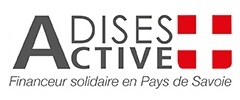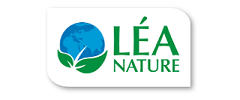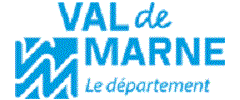Policy Activities
International Level - Global Climate and Energy Policies
WECF participates in the following policy processes, which focus entirely or partly on the issues of climate protection and sustainable energy (energy efficiency and renewables):
- UN policy processes: UNFCCC (United Nations Framework Convention on Climate Change) and Kyoto Protocol, UNEP GC (United Nations Environment Program Governing Council) and CSD (United Nations Commission for Sustainable Development)
- EU policy processes: EU Climate and EU Energy
- National policy processes: Netherlands, France, Germany
Why does WECF work on Energy and Climate?
Climate change is probably the biggest threat to sustainable development. Climate change is expected to exacerbate existing inequalities. Civil society, governments and the private sector must together make climate policies work towards sustainable development and not against it.
Poverty, inequalities and climate change are intrinsically linked. Climate change increases inequalities and threatens the achievement of the Millennium Development Goals (WHO 2009).
Climate change will most strongly affect the poor in poor countries, in the most vulnerable regions (mountainous, water-scarce, low food producing). Women and children, displaced and indigenous people, and rural and slum dwellers are the most affected. Climate change is expected to result in flooding of island states and coastal areas, increased heatwaves, droughts, floods, storms, loss of species and ecosystem diversity, and acidification of oceans which leads to less absorption of CO2.
Unless global temperatures remain below a 2⁰ C increase, the following “tipping elements”, catastrophic ecological disasters, could occur: dieback of the Amazon rainforest, cessation of the ocean currents, shifts in monsoons, and melting of land-ice sheets, which could lead to 7 meter ocean rises (WBGU 2009). As a result, the water supply would be jeopardised (millions of people depend on glaciers), food production would to decline by 5-12%, health would decline from increased diseases (infectious, diarrhoea, vector and food-borne illness) and fatalities (resulting from floods, storms), there would be an increase of millions of climate change refugees, and a reduction of economic potential from loss of natural resources, biodiversity, fisheries, of up to 20% of GDP (Stern Review on the Economics of Climate Change 2006).
The main sectors contributing to Green House Gas emissions (GHG) are energy comsumption, forest destruction, housing, transport and agriculture. In developing countries, the greatest expected increases in CO2 emissions are in the sectors of forest destruction, housing and transport (Inter-governmental Panel on Climate Change, Poznan, 2008). Reducing emission in one area and not in others is ineffective and climate change solutions need to be integrated.
While civil society, governments and the private sector have the potential to make climate policies work for sustainable development, the last years of implementation of existing climate instruments has shown that their effect on development can be negative if human rights safeguards and monitoring by civil society are not firmly incorporated. Offsetting mechanisms, such as the Clean Development Mechanism, have thus far mostly benefited the “big and dirty” and not lead to sustainable development for the poor.
WECF works towards making (global) mitigation instruments and funds accessible for women, indigenous peoples, marginalized groups and the poor. In this way, climate funds will support local renewable energy and carbon-reducing local investments, increase demand for local products and services, strengthen local markets, increase control over local resources and ensure participation of women.
It is essential that national and global policy processes include the participation of affected peoples and are based on local evidence and knowledge of climate, development and structural poverty elimination. At the same time, mitigation and adaptation funds can provide much-needed improvements to the livelihoods of the deprived, reducing indoor air pollution from renewable energies, improving health and hygiene from climate-adaptive sanitation systems, conserving and restoring forest ecosystems, and improving access to integrated, safe and affordable mobility.
Climate change governance should be global in scope and accept the perspective of the most vulnerable countries and peoples as being central to protecting humankind. A structural shift towards de-carbonisation of economic development can be achieved with women and civil society groups acting as key “change agents” in strategic alliances.
WECF aims to Promote poverty eradication through empowering, effective, equitable solutions for climate change mitigation and adaptation.
UN
WECF facilitates and coordinates the participation of member and partner organisations in the global climate change policy process under the United Nations Framework Convention on Climate Change, UNFCCC. WECF, members and partners, organise presentations of solutions recommended by women and environment organisations and present their work in exhibition stands. WECF is active in a number of civil society climate advocacy networks including Climate Action Network (CAN) and the Women and Gender Constituency (see reports on WECF’s official events at UNFCCC COP and SB meetings (2007, 2008, 2009, 2010) and press releases with WECF policy positions on keeping unsustainable energy sources out off global financial mechanisms, and on making the financial mechanisms CDM accessible for household and community projects (and women’s projects).Climate change is a global issue because wherever emissions are produced they influence global warming at a global level. Fight against climate change is consequently a matter involving every country. The success of addressing climate change depends on harmonization of norms and reconciliation of priorities that calls for international cooperation. Thus, part of the solution necessarily comes through international regulation and negotiations.
In 1992, the United Nations Framework Convention on Climate Change was adopted. Its additional protocol calls for decreases in the emissions of greenhouse gases. It was signed in Kyoto, Japan, in 1997 and came into force in 2005 after Russia’s ratification. This protocol provides binding commitments for thirty-eight industrialized nations to restrict their emissions from 2008 to 2012. As such, the application ends in less than two years and therefore a new climate regime needs to be negotiated.
The Conference of the Parties adopted the Bali Action Plan in December 2007, that launched international negotiations to discuss a new climate regime that will provide substitute for the Kyoto protocol.
WECF participates in UNFCCC (United Nations Framework Convention on Climate Change) and Kyoto Protocol, UNEP GC (United Nations Environment Program Governing Council) and CSD (United Nations Commission for Sustainable Development).
According to Article 7, paragraph 6, of the United Nations Framework Convention on Climate Change (UNFCCC), WECF is admitted as an observer organization. As such, it is actively involved in the negotiation process by attending sessions and exchanging views with other participants, including delegates. This involvement allows vital experience, expertise, information and perspectives from civil society to be brought into the process to generate new insights and approaches.
WECF sees that climate change governance needs to take into account the perspective of the most vulnerable countries and peoples to obviate being a threat to democratic social development. To ensure that the interests of humankind as a whole have priority over national and economic interests, civil society must be capable to take the lead for action and strive for democratic legitimacy and participation in the climate change governance.
WECF is involved and organises side events, which are a forum for capacity building with the purpose of benefiting participants attending the sessions of the Conference of the Parties and/or subsidiary bodies of the Convention. In side events and also in other relevant intergovernmental meetings on climate and poverty, solutions and problems, WECF brings its expertise on crucial climate issues like energy and housing.
WECF is based on networking. Networking strength the voice of groups normally not well represented in policy-making processes, e.g. the non-motorised poor, forest-dependent indigenous peoples, women-headed households and rural communities. WECF works in joint programmes and campaigns in which Southern and Eastern partners take the lead in defining needs and setting priorities for their programmes and activities. As an admitted NGO, WECF can nominate partners to attend UNFCCC sessions. WECF is also part of other networks, based on reciprocity, such as the UNFCCC Women and Gender Caucus, Climate Justice Now, CAN Europe and CAN International and the tcktcktck campaign, to spread and benefit from capacity building. WECF works in strategic alliances with these UNFCCC networks. The results of cooperation, expertise and capacity building are capsulated in policy papers or position papers, with recommendations for global policies on climate finance and development (UNFCCC, FCCC, UNEP GC, CSD, CBD, WHO, WB, G8/20, EU, UNECE), publicly available. WECF also often has a booth to display documents and exchange knowledge with participants.
Article 6 of the Convention calls on governments to promote education, training and public awareness on climate change. WECF works as a founding member within the Women and Gender constituency and cooperates closely with the Youngos constituency on this subject to ensure education, training, public awareness, public participation, public access to information and international cooperation are effective and improve capacity building. Testimonies of climate-and unsafe energy affected were made during UNFCCC COP and SB, side events and plenaries, most of the time relayed by media actions.
WECF advocates for innovative and replicable solutions for households and communities in the UNFCCC negotiations. Sustainable development has to be a participatory process, based on respect for human rights. Indeed, the quality of the global climate governance depends on its capacity to ensure human rights (including socio-economic) are fulfilled. Global climate agreements include civil society recommendations on safeguards for indigenous peoples, women and the poor.
WECF advocates for mitigation and adaptation funds to be accessible to women and poor communities and value low carbon, low emission development. Women and civil society groups are fundamental stakeholders in the UNFCCC process. They will actively contribute to equitable global governance of the climate change challenge. Furthermore, the access and participation of observers to the process promotes transparency in this increasingly complex universal problem.
WECF builds on many years of experience in effectively bringing evidence-based local knowledge on climate and development and structural poverty elimination into global policy processes through participation of affected peoples. Ending misery needs more than bringing funds or installing basic services for poor communities. WECF helps enable civil society to function as a watchdog, to monitor changes in the environment and climate by using new technologies and evaluate the impacts of actions by governments and private sector.
WECF provides input to the project-based mechanisms [CDM, JI] and on technology transfer [TT:CLEAR] based on the its network expertise on energy and housing. WECF ensures the access to financial mechanism is adapted, fair, equitable, and include human rights. The last years of implementation of existing climate instruments has shown that their effect on development can be negative if human rights safeguards and monitoring by civil society are not firmly incorporated. For example, some offsetting mechanisms, such as the Clean Development Mechanism have thus far mostly benefited the “big and dirty” and not lead to sustainable development for the poor. WECF ensures that global climate agreements include civil society recommendations on safeguards for indigenous peoples, women and the poor, WECF advocated via submissions for household community level CDM and advocates for nuclear to keep excluded from project-based mechanisms.
WECF believes that equal opportunities and leadership of women and other under-represented groups in policy-making processes are essential for achieving equitable and balanced development and poverty reduction. WECF is founding and core member of the Women and Gender constituency and gives joint interventions at the negotiations and hands in joint submissions. WECF is one of the alternate focal points of the constituency.
At the CSD (United Nations Commission for Sustainable Development) WECF is accredited with ECOSOC, United Nations. WECF facilitates and coordinates participation of member and partner organisations in this policy process which aims to implement the agreements of the Rio de Janeiro 1992 Earth Summit. The CSD functions in 2-year thematic cycles, in 2007 and 2006 the focus was on Energy issues. WECF contributed with side events and policy papers. WECF has been contributing since 1998, and also contributed to other thematic cycles including in 2010 on chemicals, waste and mining. WECF is currently co-chairing the women major group for the cylce 2010/2011.
European Level
WECF has a special regional focus on the Eastern part of Europe where many local activities are taking place.
WECF is involved in both EU Climate and EU Energy in the EU policy processes:
WECF follows and provides input into the EU climate change policy development (EU Climate) as well as into the European energy policy (EU Energy).
WECF is a member of CAN (Climate Action Network) Europe and EEB (European Environmental Bureau) and cooperates closely with CAN EECCA (Climate Action Network Eastern Europe Caucasus and Central Asia).
WECF contributes to EU consultations on climate and energy via various means, such as
- Green Week Conference
- Sustainable Energy Weeks in Brussel, Belgium
- EU Central Asia High Level Conference on Water and Climate, Rome, 2009
- Letters to policy makers
- our publication "The Critical Question/Die Kernfrage"
National Level
WECF is involved in the decision-making processes regarding climate protection and sustainable energy (energy efficiency and renewable) of Netherlands, France and Germany.
WECF participates to bilateral meetings with concerned ministries and governments.
WECF is member of the steering commitee of the German Climate Alliance and will soon be a member of the RAC (Réseau Action Climat) France
WECF campaigns in Germany, France and the Netherlands for sustainable energy and climate policies.
WECF organises local Climate Change Actions, like in Germany.

































